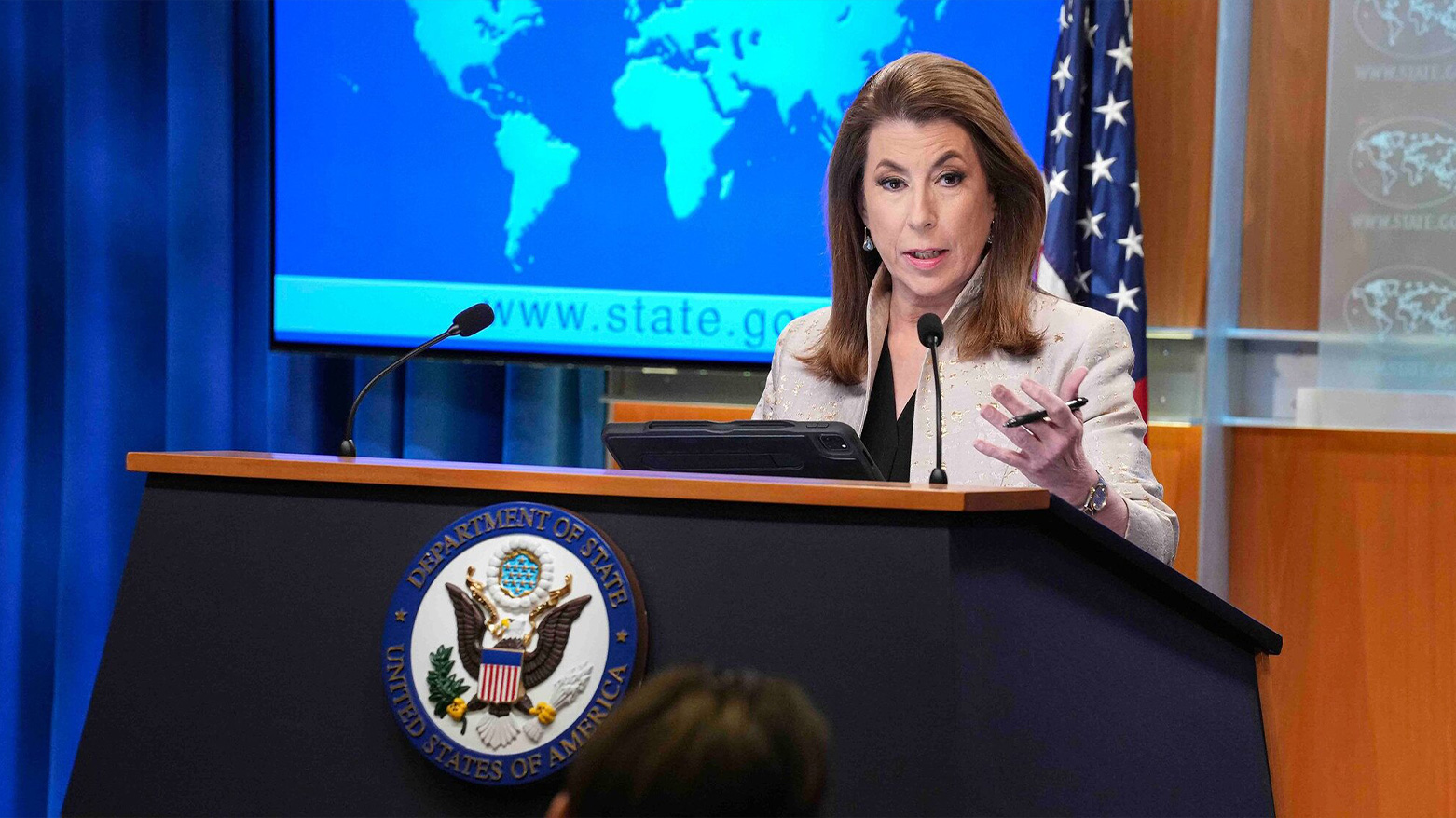U.S. Urges Swift Resolution of Kurdistan Salary Crisis, Reaffirms Support for KRG
"Marco Rubio has emphasized the importance of stability and prosperity in Iraq and the region and has done the same in recent meetings and conversations with KRG President Barzani and KRG Prime Minister Masrour Barzani.” said Tammy Bruce.

By Ahora Qadi
ERBIL (Kurdistan24) – During Tuesday’s press briefing, U.S. State Department Spokesperson Tammy Bruce addressed a question from Kurdistan24 concerning the ongoing salary and budget dispute between the Iraqi federal government and the Kurdistan Region, urging both sides to resolve the matter swiftly and in accordance with the Iraqi Constitution.
“We're aware of this, and we urge Baghdad and Erbil to resolve their issues through constructive dialogue consistent with their constitutional responsibilities,” Bruce said, reaffirming the U.S. stance on supporting a balanced and lawful resolution to disputes between Iraq’s federal and regional governments.
Bruce noted that a rapid solution to the salary crisis would send an encouraging message to the international business community, particularly U.S. investors: “Resolving the salaries issue quickly sends a signal that Iraq is creating an environment in which U.S. companies would want to invest.”
She added that the implications of resolving the standoff extend far beyond public sector pay. “Successful resolution would also send a positive signal on broader cooperation for the benefit of all Iraqis, such as reopening the Iraq-Turkey pipeline and additional energy exploration, including with U.S. companies,” Bruce explained.
The State Department’s remarks come as tensions remain high over Baghdad’s recent decision to halt the transfer of public sector salaries to the Kurdistan Region, a move that has been widely condemned in Erbil as unconstitutional and politically motivated.
Bruce emphasized that U.S. diplomatic channels remain active in promoting economic and political stability. “When speaking with senior Iraqi officials, such as Prime Minister Sudani, Secretary of State Marco Rubio has emphasized the importance of stability and prosperity in Iraq and the region,” she said. “He has done the same in recent meetings and conversations with KRG President Barzani and KRG Prime Minister Masrour Barzani.”
The Biden administration’s consistent engagement with both Erbil and Baghdad underscores Washington’s ongoing commitment to a stable Iraq in which the Kurdistan Region remains a key pillar.
“U.S. support for a strong and resilient Iraqi Kurdistan Region remains a crucial element of our relationship with Iraq,” Bruce concluded, reiterating the enduring significance of Erbil in the broader framework of U.S. foreign policy and strategic interests in the region.
U.S. Urges Swift Resolution of Kurdistan Salary Crisis, Reaffirms Support for KRG
— Kurdistan 24 English (@K24English) June 10, 2025
"Marco Rubio has emphasized the importance of stability and prosperity in Iraq and the region and has done the same in recent meetings and conversations with KRG President Barzani and KRG Prime… pic.twitter.com/S72uAVxhzl
The growing tensions between Erbil and Baghdad are fueled by the federal government’s persistent failure to disburse the Kurdistan Region’s rightful budget shares and public sector salaries. Masked behind weak legal and bureaucratic justifications, Baghdad’s approach is perceived by many in Kurdistan as a calculated political strategy to erode Kurdish self-rule and inflict hardship on its people.
Although Iraq’s federal budget law explicitly mandates financial support for the Kurdistan Regional Government, the central authorities have consistently delayed or diverted these funds—a move Kurdish officials condemn as a direct breach of constitutional commitments and a deliberate attempt to destabilize the region’s economic and political standing.